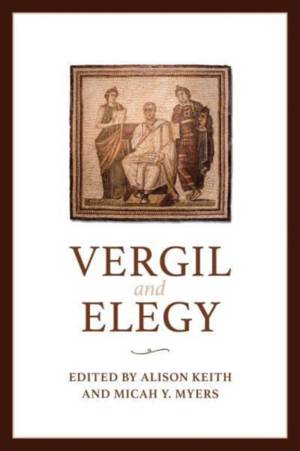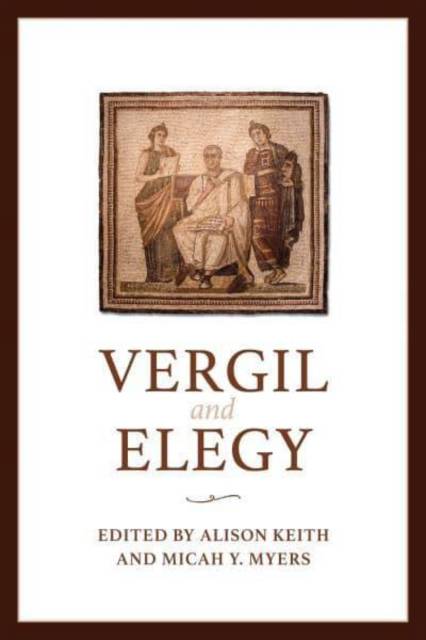
- Retrait gratuit dans votre magasin Club
- 7.000.000 titres dans notre catalogue
- Payer en toute sécurité
- Toujours un magasin près de chez vous
- Retrait gratuit dans votre magasin Club
- 7.000.0000 titres dans notre catalogue
- Payer en toute sécurité
- Toujours un magasin près de chez vous
Description
Born in 70 BCE, the Roman poet Vergil came of age during a period of literary experimentalism among Latin authors. These authors introduced new Greek verse forms and metres into the existing repertoire of Latin poetic genres and measures, foremost among them being elegy, a genre that the ancients thought originated in funeral lament, but which in classical Rome became first-person poetry about the poet-lover's amatory vicissitudes. Despite the influence of notable elegists on Vergil's early poetry, his critics have rarely paid attention to his engagement with the genre across his body of work.
This collection is devoted to an exploration of Vergil's multifaceted relations with elegy. Contributors shed light on Vergil's interactions with the genre and its practitioners across classical, medieval, and early modern periods. The book investigates Vergil's hexameter poetry in relation to contemporary Latin elegy by Gallus, Tibullus, and Propertius, and the subsequent reception of Vergil's radical combination of epic with elegy by later Latin and Italian authors. Filling a striking gap in the scholarship, Vergil and Elegy illuminates the famous poet's wide-ranging engagement with the genre of elegy across his oeuvre.
Spécifications
Parties prenantes
- Editeur:
Contenu
- Nombre de pages :
- 516
- Langue:
- Anglais
- Collection :
Caractéristiques
- EAN:
- 9781487547950
- Date de parution :
- 20-04-23
- Format:
- Livre relié
- Format numérique:
- Genaaid
- Dimensions :
- 155 mm x 231 mm
- Poids :
- 816 g

Les avis
Nous publions uniquement les avis qui respectent les conditions requises. Consultez nos conditions pour les avis.





